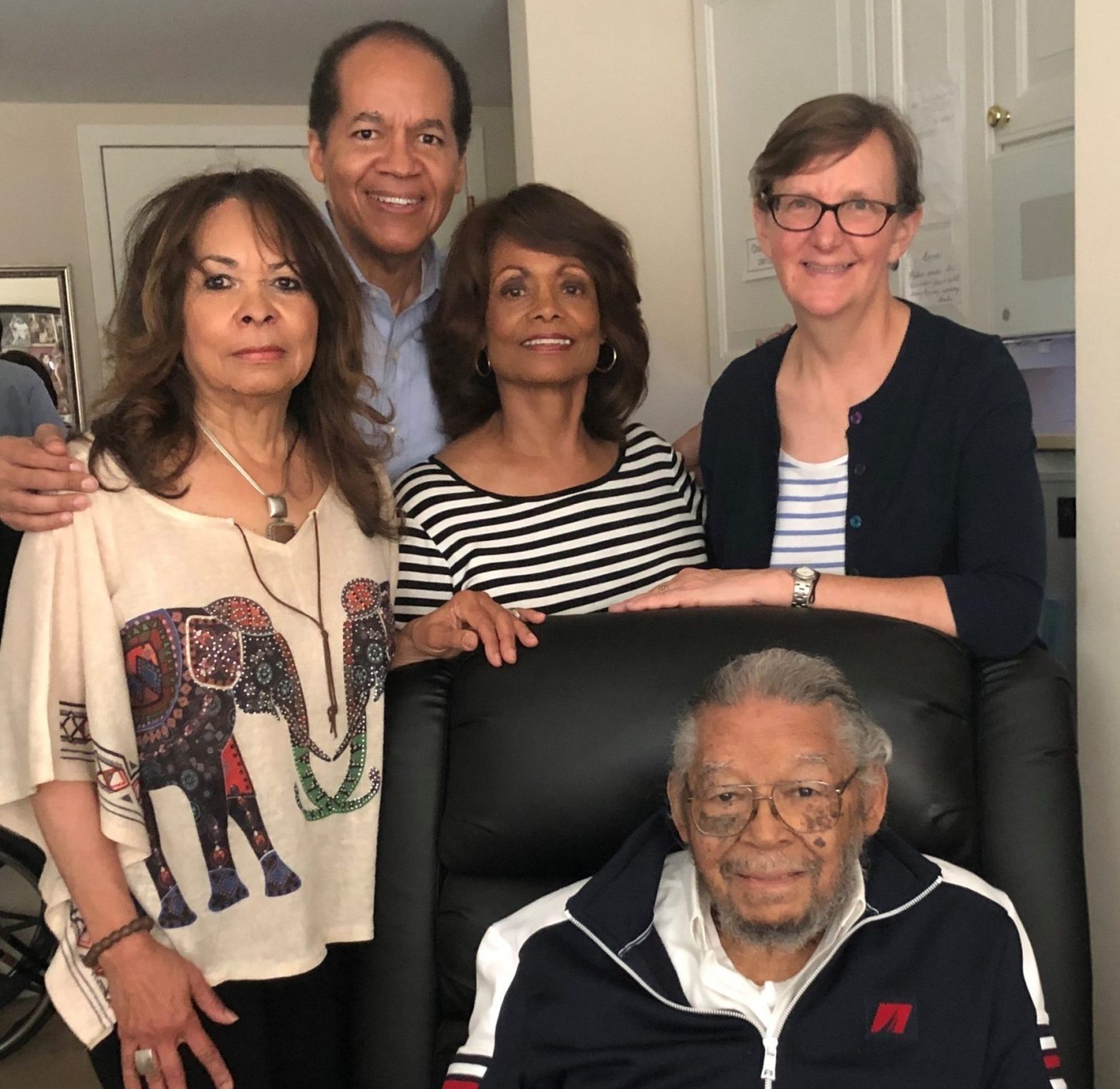
Nelson Henry’s son Dean contacted me out of the blue one day after hearing about one of my clients, Helen James, on the Today Show. Helen, a woman in her 90s, decided to challenge a bad discharge she received from the Air Force because of being a lesbian. Dean was touched by the story and wanted me to hear about his Dad, Nelson, then in his mid-90s.
Nelson, who was African-American, was discharged from the Army in the 1940s. He knew his discharge, called a “blue discharge” due to the blue paper it was printed on, was wrong and believed it had been motivated by racism. The blue discharge excluded Mr. Henry from many jobs. It cut off his GI benefits. And it resulted in him driving a cab for 13 years instead of enrolling in dental school, where he had already been granted a conditional acceptance before he had enlisted.
Mr. Henry was not alone: 47,000 soldiers got blue discharges from the Army. African-Americans, like Mr. Henry, got about 10,000 of them—or 22.2%—even though black soldiers made up only about 6.5% of the Army. Gays and lesbians also got a disproportionate share: about 5,000.
In 1945, the NAACP and the Pittsburgh Courier newspaper led a campaign to abolish blue discharges, and in 1946 a congressional report found them discriminatory and recommended they be ended. The military eliminated them in 1947, but did not automatically upgrade blue discharges that had already been given.
Although Mr. Henry had tried to have the Army change his blue discharge to honorable, he had been unsuccessful. But he never gave up and he never let go of the hope that he could receive an honorable discharge before he died. In March 2019, along with my colleagues at Golden Gate Law School’s Veteran Advocacy Clinic, Legal Aid at Work filed a petition with the Army to change Mr. Henry’s discharge to honorable. When I met Mr. Henry in person in June 2019, he told me his wife urged him to throw away the boxes of papers about his discharge. But he held onto them because he knew it had been wrong and could not give up on the idea of fixing this injustice.
In June 2019, the Army agreed to change the discharge to honorable, finding that there was evidence that an “injustice” had occurred and that there“may have been an environment of racial discrimination” that led to the discharge. Mr. Henry called it a “miracle.” In November 2019, he was honored at a Veterans Day ceremony at his assisted living home.
Sadly, his nursing home, like so many others, struggled to contain COVID-19. Mr. Henry had been prevented from having visitors for more than six weeks when he became ill with COVID-19. At least 65 of the nursing home’s residents have tested positive for the virus. Mr. Henry was hospitalized on May 1 and lost his battle with COVID-19 on May 9, 2020. Like so many families these days, his family said their goodbyes to him in a Zoom call. In addition to his son Dean and Dean’s wife Karen, Mr. Henry leaves a behind his daughter Lydia and another son Nelson as well as a sister, grandchildren and many other grieving family members.
Mr. Henry was an extraordinary man. He never stopped believing and hoping that an injustice could be remedied. And I hope his death was a bit more peaceful knowing that he prevailed in his fight and received the honors he deserved so many years ago.
Elizabeth Kristen, Senior Staff Attorney and director of our Gender Equity & LGBT Rights Program